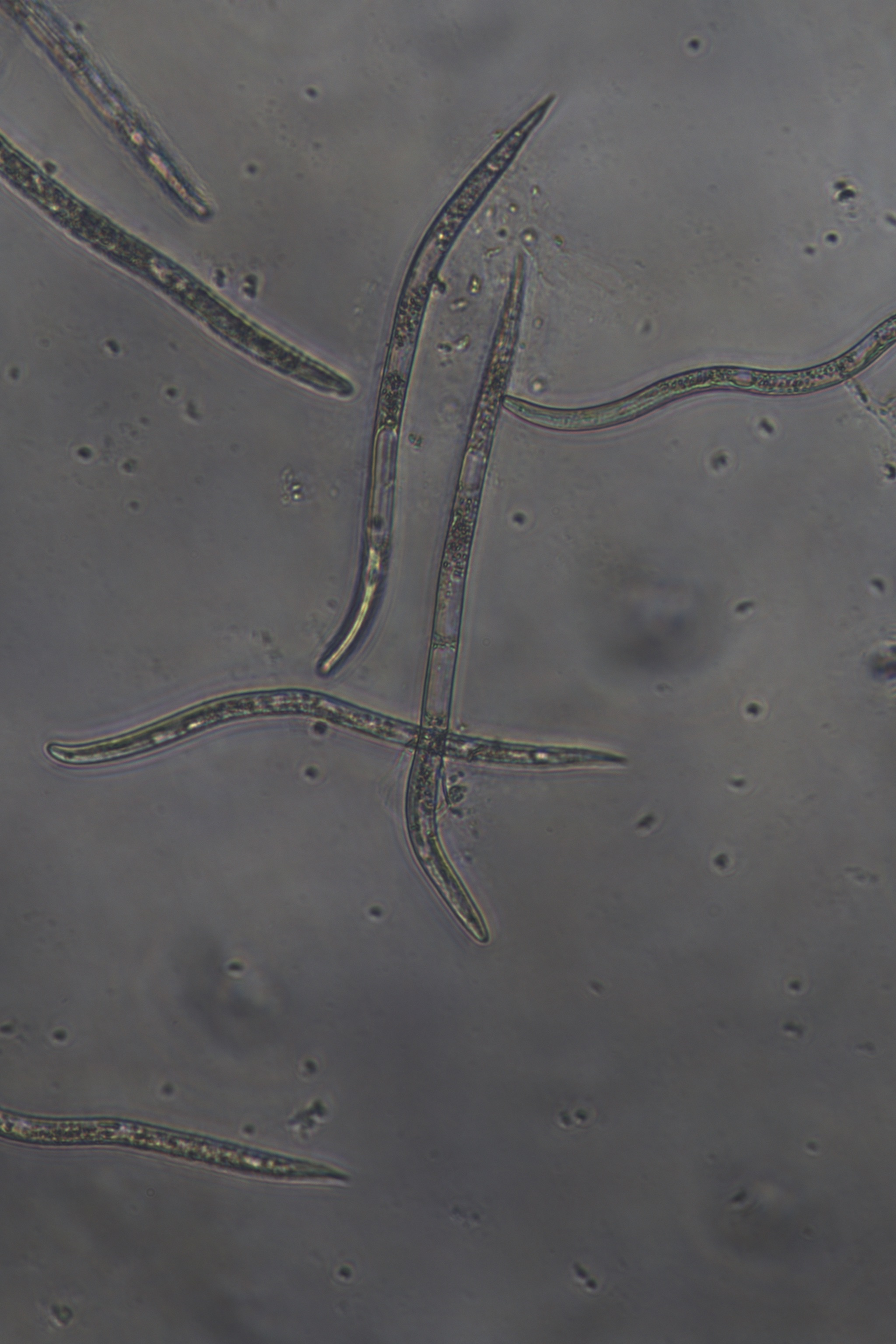Hormone secretion of plants has a major impact on nematodes
Plants spend a lot of energy releasing hormone substances from roots to soil. It affects the microbial environment of the soil surrounding the plant, and has a far greater effect on certain species of plant parasitic nematodes than previously thought.

The earth beneath our feet is full of life. Some of the small organisms are good for plants, while others are very harmful. Surrounding the plant roots, it abounds with microorganisms called nematodes. For them the same is true, some help protect the plants while others are plant parasitic.
“We know that plants excrete up to 20% of their net production from photosynthesis via the roots. That is, it invests a lot of energy in sending substances out through the roots, but why do they use all that energy and what is it used for? This is what we have tried to study,”says Professor Mogens Nicolaisen from the Department of Agroecology at Aarhus University.
- ALSO READ: Plants may be able to defend each other
In a new study, he has been involved in investigating how these hormonal products affect nematodes, fungi, and bacteria in the soil.
"Our main idea is that the plants invest a lot of energy in creating an optimal environment for beneficial nematodes and microorganisms," he explains.
Overall picture of microbial interaction
By cultivating different mutants of the plant thale cress (Arabidopsis thaliana) in field soil, the researchers have been able to investigate the effect of different plant hormones on the microbial life surrounding the roots of the plants.
"In this study, we have used plants, where certain hormones has been switched off, so we can investigate how each of the selected hormones or rather the lack of them affects nematodes, bacteria, and fungi in the soil," he says.
Dangerous to tinker with hormone balance
Just like in humans, hormones are very important for the plants, and therefore it is dangerous to tinker with the genetics. And this study shows just that.
"We changed the genes for the hormones in question, and that creates a lot of problems for the plant in relation to nematodes. But we saw different reactions in the nematode communities. Some did not react at all, while others were affected to a great extent, ”explains Mogens Nicolaisen, and points out that it is mainly the nematodes that live in or close to the roots that are most affected.
In a comparison between the wild type, i.e., the plant that had not had any hormones removed, and the mutants, the researchers could see a massive increase in the number of Meloidogyne hapla. Which is a harmful nematode species known to invade the roots of plants and suck nutrients from them. While other species that do not interact to the same degree with the plant's roots were largely unaffected. We therefore believe that it is a defence strategy from the wild type to release substances that can keep the pathogenic nematodes away,” explains Mogens Nicolaisen.
Small effect on fungi and bacteria
Similarly, researchers have studied the effect on fungi and bacteria in the soil. But here they did not see any great effects.
However, we saw that if there are few pathogenic nematodes, the number of certain types of bacteria increased. This may indicate that these bacteria help fight nematodes in interaction with the plant. Overall, the study shows that if you destroy the hormonal balance, the nematodes will take over and enter the plant in large numbers,” says Mogens Nicolaisen.
- ALSO READ: Plants can scare away harmful nematodes
In this study, the researchers have completely removed the hormones from the plants, but Mogens Nicolaisen explains that in the future one could imagined that it would be possible to improve the plant's defences by better controlling the hormone balance.
"A next step could be to see how the hormone balance is controlled in different crops and how we can influence this so that we achieve a better defence against nematodes," he says.
| Supplerende information | |
|---|---|
We strive to ensure that all our articles live up to the Danish universities' principles for good research communication (scroll down to find the English version on the web-site). Because of this the article will be supplemented with the following information: | |
| Study type | Experiment |
| Collaborators | Department of Agroecology at Aarhus University and Department of Biotechnology at Ghent Universityity |
| Funding | The project was funded by Aarhus University - project no. 27747 |
| Conflict of interest | None |
| Read more | The article “Phytohormones selectively affect plant parasitic nematodes associated with Aradopsis roots” is published in the journal New Phytologist. It is written by: Md. Maniruzzaman Sikder, Mette Vestergård, Tina Kyndt, Enoch Narh Kudjordjie and Mogens Nicolaisen |
| Contact | Professor and section leader Mogens Nicolaisen, Department of Agroecology, Aarhus University. Tel .: +45 24757668 or e-mail: mn@agro.au.dk |
